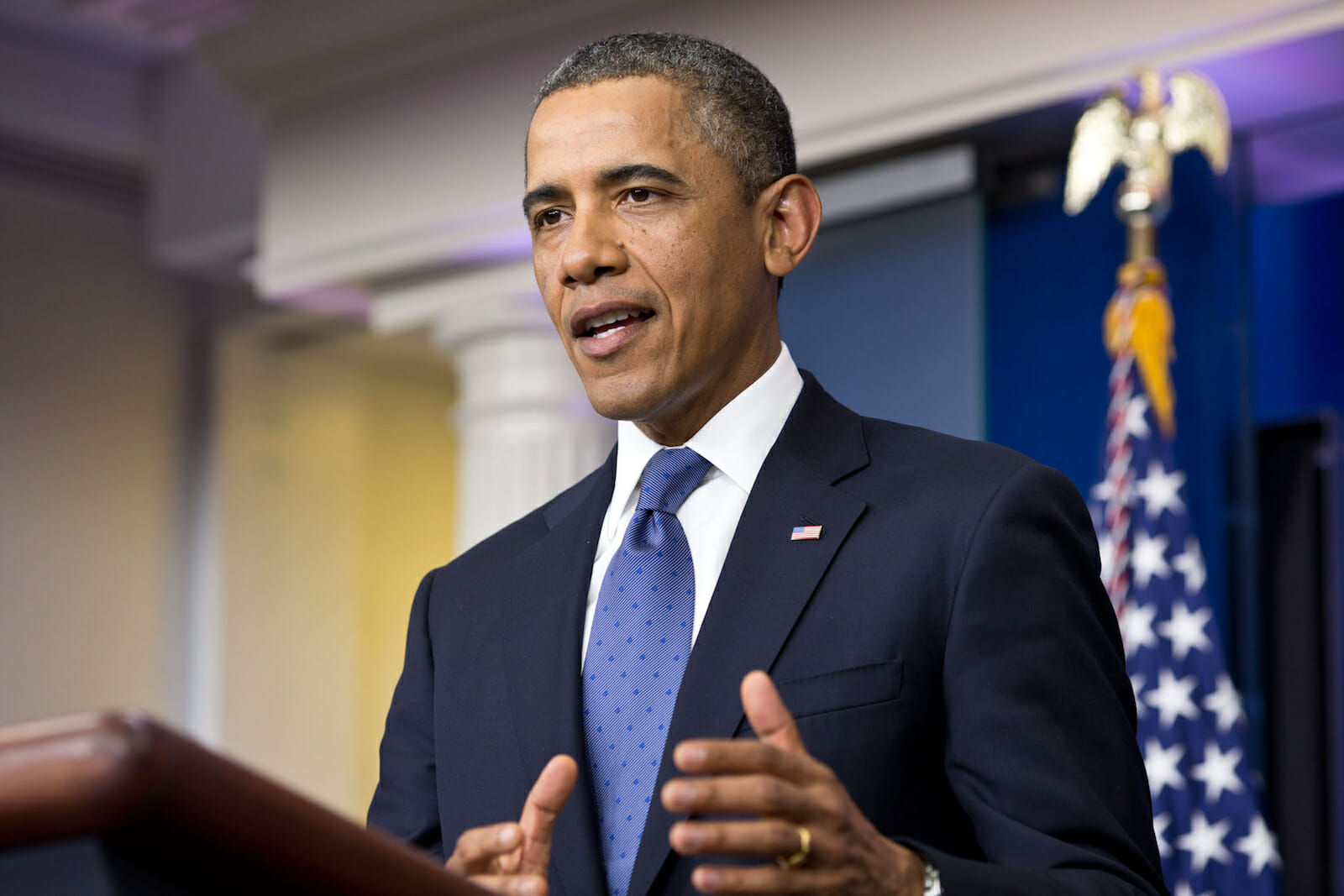
Politics
Obama: Voting Present in Foreign Policy
The last few weeks have been brutal on President Obama’s reputation for foreign policy leadership. Consider the following. In a just-released Quinnipiac University poll, a plurality of voters rated Mr. Obama as the worst president since World War II. A majority of respondents also judged that the Obama administration is “not competent to run the government” and believe that “strong leadership qualities” are not among the president’s attributes.
In a new Investor’s Business Daily/TIPP survey, 56 percent of the public blames the president’s policies for the jihadist turmoil in Iraq.
A New York Times/CBS News public opinion survey conducted in late June finds that a sizeable majority (58 percent) are dissatisfied with Obama’s stewardship of international affairs, the highest level of disapproval of his presidency. Notably this figure represents an increase of 10 percentage points in only a month’s times.
A Gallup poll released in late June shows that the public’s confidence in Mr. Obama has dropped from 51 percent at the start of his first term to 29 percent today, a level that is close to the final years of the George W. Bush presidency.
In a Wall Street Journal/NBC News survey released in mid-June, only 37 percent of Americans are satisfied with the president’s handling of foreign policy and 54 percent say that they no longer feel Obama “is able to lead the country and get the job done.”
A Washington Post/ABC News poll released in early June tells a similar story, with 50 percent of the public expressing disapproval of Mr. Obama’s conduct of foreign policy.
Earlier posts have criticized the president’s uninspiring vision and disengaged management style when it comes to foreign policy. Over the past month, more evidence has rolled in to bolster my case.
Mr. Obama’s May 28th commencement address at West Point, which the White House had advertized as a major exposition of his foreign policy thinking, was widely panned as unimaginative and insubstantial. The New York Times editorial board wrote that his remarks “did not match the hype, was largely uninspiring, lacked strategic sweep and is unlikely to quiet his detractors, on the right or the left.” Others observed that the address conspicuously failed to rouse the captive audience of army cadets and omitted any detailed mention of Asia, the one region of the world that Obama tells us he’s really interested in.
Similarly, Richard Haass, president of the Council on Foreign Relations, noted that the address was all about minimalism, telling “us more about what the president opposed than what he favored.” David Rothkopf, who can hardly been seen as a partisan critic, commented that Obama’s remarks “utterly failed to achieve its goal of reversing the narrative that this is a president – and a country – that is unlikely to lead as we have in the past or as the world demands America does today and in the future.” The speech is another piece of evidence, in Rothkopf’s view, that “in his heart this president may be the most prominent representative of the Rand Paul wing of the Democratic Party.”
In terms of Mr. Obama’s leadership style, it’s striking that more and more Democrats have taken to calling him “detached,” “flat-footed,” and “incompetent.” Ron Fournier at the National Journal relates that one of the most powerful Democrats in Washington has simply given up on the president. He elaborates that Democratic elites, “Respect and admire Obama but believe that his presidency has been damaged by his shortcomings as a leader; his inattention to details of governing; his disengagement from the political process and from the public; his unwillingness to learn on the job; and his failure to surround himself with top-shelf advisers who are willing to challenge their boss as well as their own preconceived notions.”
Fournier also quotes a key Democratic House member as saying that “[Obama is] bored and tired of being president, and our party is paying the price.” This is an image reinforced by a long Politico article last month about how Mr. Obama finds his current responsibilities mundane and is increasingly focused on his post-White House years.
It contains the stunning revelation that he regards matters like the Ukraine crisis and his signature health care program to be “minuscule things” compared to the free-wheeling conversations about life and art that he’s now convening over late-night dinners.
The last month has delivered a twin message: President Obama appears to have checked out just as the American people have with him.

